2012 Sea-Doo PWC Trailer Line Review
Models range from high-tech...to simple
Sea-Doo is getting pretty serious about the trailer business. After introducing the iCatch trailer concept in 2011, the company is back for 2012 with a whole series of trailer offerings, dubbed Move, that the company hopes consumers will be putting under their favorite ride this year.
While the lineup is clearly spread between price points, Sea-Doo is also hoping to educate consumers further about its higher-end iCatch system, a hitch-post latching system that allows the watercraft to be driven directly onto the trailer and secured by simply bumping the bow into the iCatch cradle. A spring-loaded pin captures the bow tow eye, securing the craft. Launching is just as simple; hop aboard your craft, pull a conveniently located lever, and the latch is released, allowing the craft to simply and quickly roll off the bunks. It’s a process that Sea-Doo claim makes launching and loading a PWC about a 60-second process (a claim I can confirm), and as such the company is planning a promotional campaign around the system’s ease of use. Both printed and video materials showcase the system’s speed and ease of use, all in hopes of the company taking a greater share of the trailer business.
Topping the line will now be a two-place iCatch model — the Move II Advanced Tech with i-Catch — that features a galvanized or powder-coated finish, torsion axle suspension, stand-on fenders, and roller bunks. A simpler version without the iCatch system — the Move II — will feature leaf suspension, stand-on fenders, carpeted bunks, and traditional winch posts.
The single-craft Move I series will consist of four models. The entry-level Move I is a simple, bunk-style, leaf-suspension trailer available in either a galvanized or black powder-coat finish with a standard winch system to secure and load craft. It’s the company’s most basic model, designed for value and the consumer who does very little trailering. The Move I Advanced Tech WP retains the carpeted bunks, but adds torsion suspension and the convenient Walk Pad feature, a U-shaped platform that surrounds the PWC to offer convenient access and keep feet dry while launching or loading. The two i-Catch models include the Move I Advanced Tech with i-Catch, a roller-bunk equipped model that foregoes the Walk Pad feature but retains a small, mid-position raised step for easy access, as well as the fully kitted-out Move I Advanced Tech with i-Catch & Walk Pad. The latter, as its lengthy name implies, features all the amenities.
Sea-Doo has made a few changes to the construction for 2012. Most noticeable is the new square frame, rather than the original’s round tubing. One advantage of the switch is that conventional trailer frame accessories, like spare tire carriers, will now be able to be added to the trailer without hassle. Sea-Doo has also improved the safety cable in order to make it quicker and faster to use.
A full sixty percent of the 2012 model year craft will be equipped with the i-Catch tow-eye “cup,” making them i-Catch ready.
Related Reading
2010 Sea-Doo ADVANCED TEC iCATCH I Trailer Review
Upgrading a PWC Trailer to LED Lighting
The No-Stress Way to Launch A PWC at the Ramp
Safe Trailering for Personal Watercraft
Get PersonalWatercraft.com in your Inbox!
Like PersonalWatercraft.com on Facebook
Comments
Most Popular
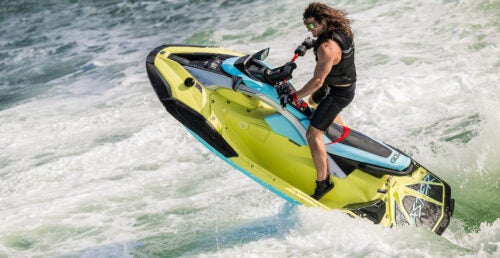
2025 Yamaha JetBlaster PRO 2-Up Review
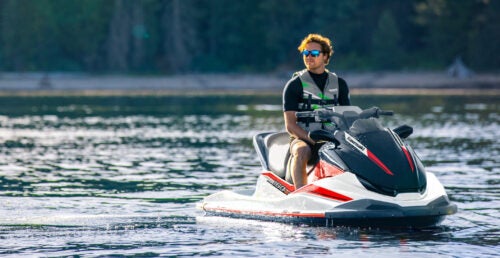
2024 Kawasaki Jet Ski STX 160X Review
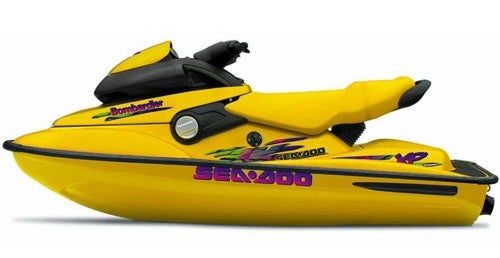
Remembering the Sea-Doo XP
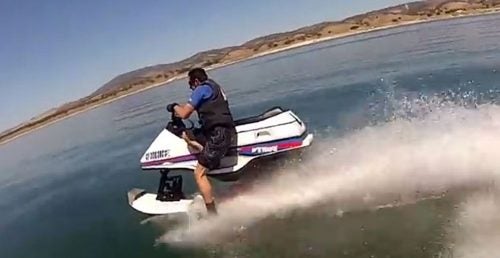
Whatever Happened to the Wetbike?
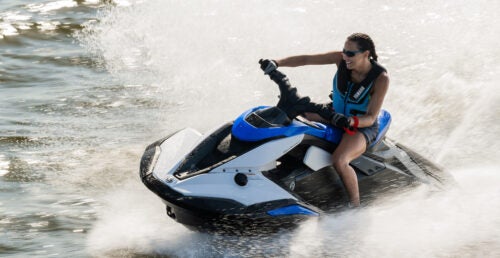
2025 Yamaha JetBlaster Review
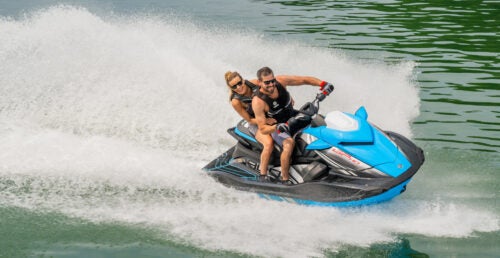
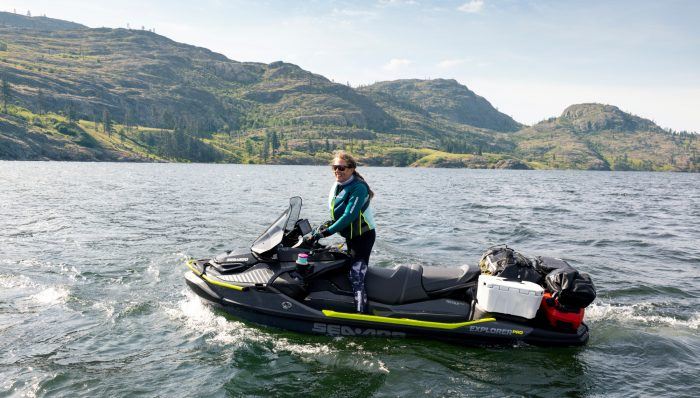
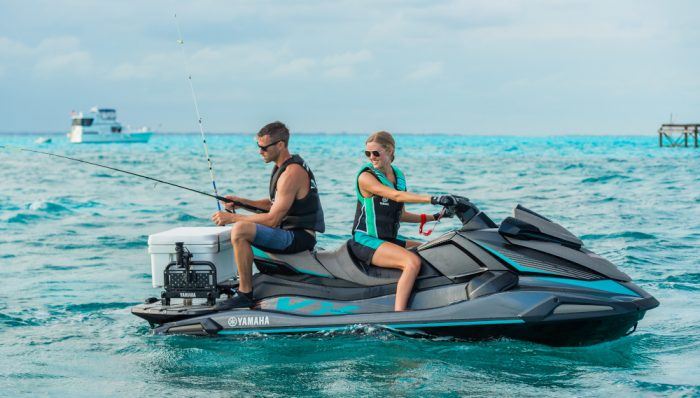
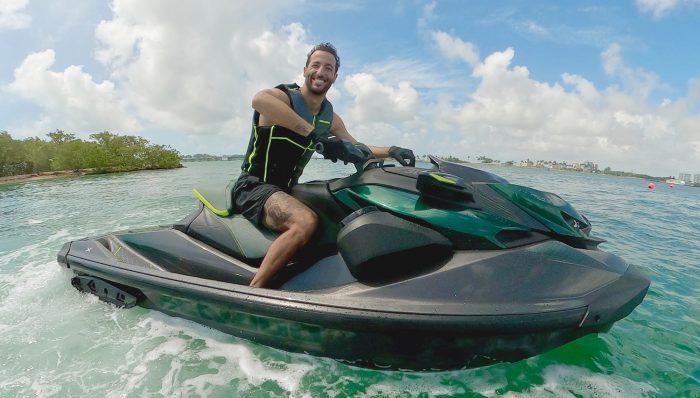
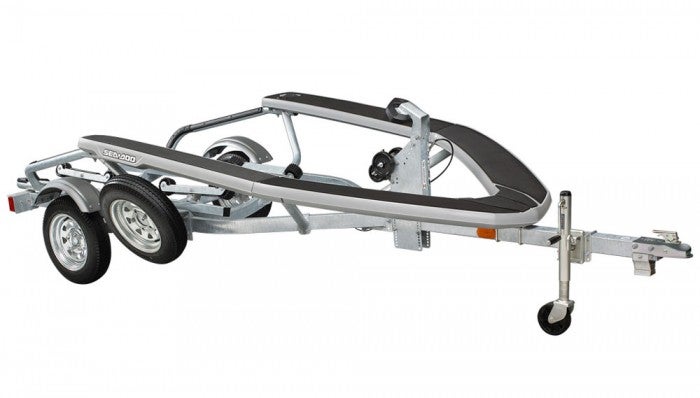
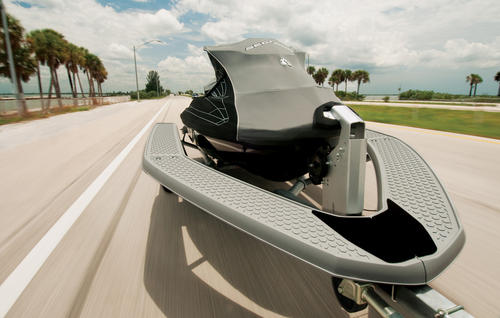
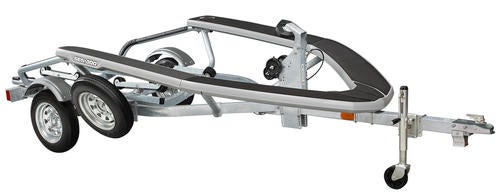
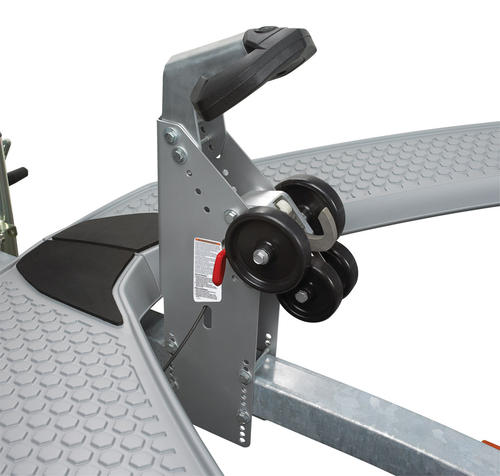

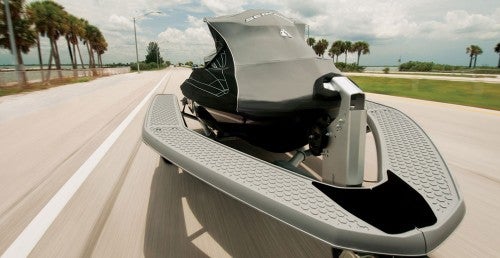
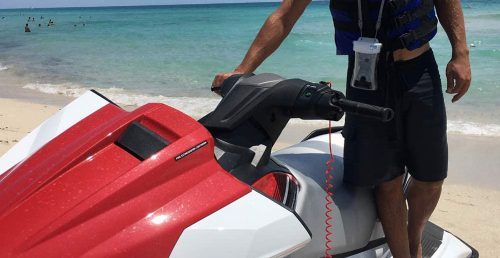


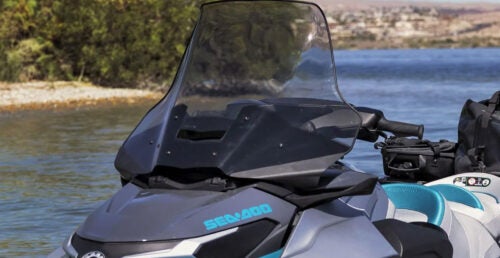
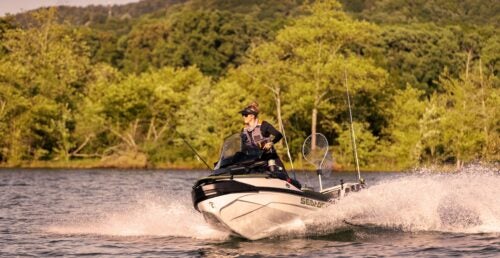


 Your Privacy Choices
Your Privacy Choices